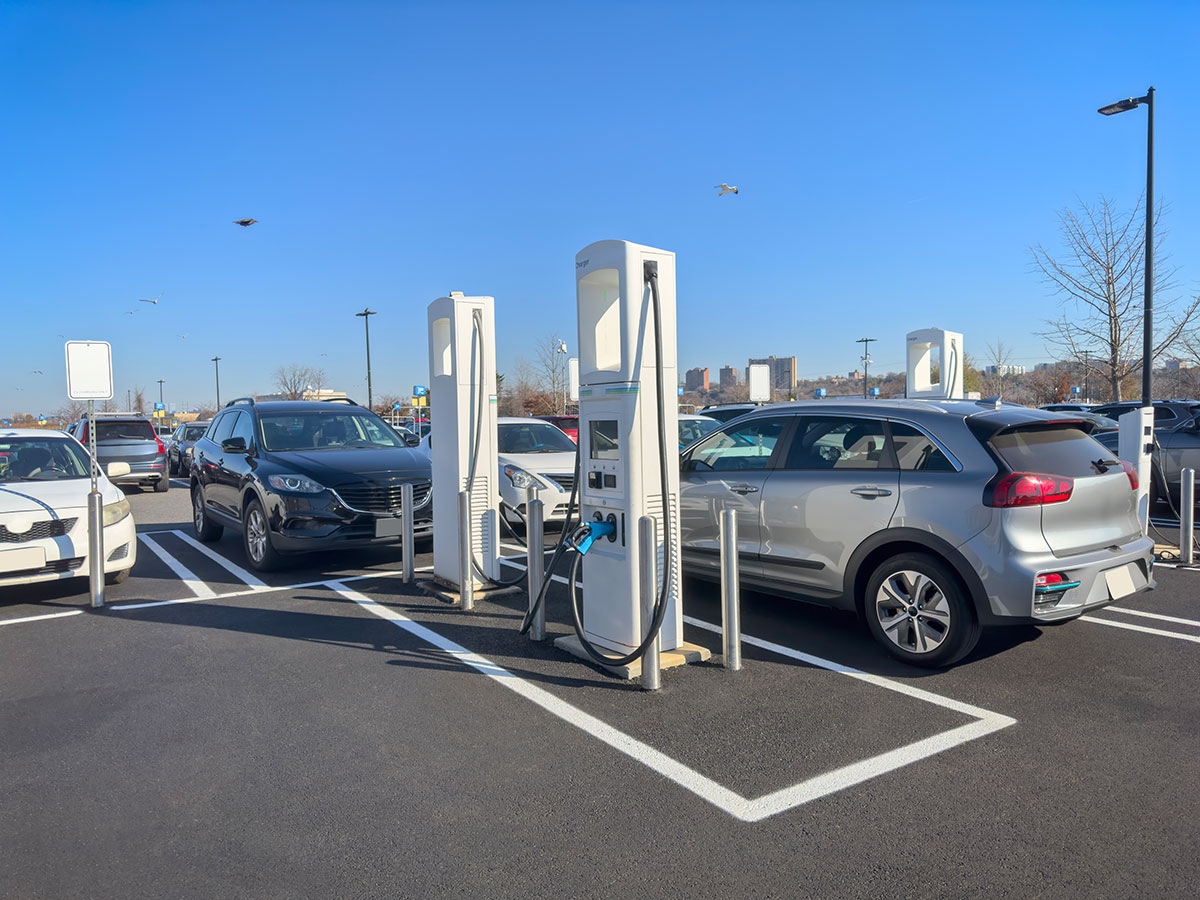Introduction:
The rise of electric vehicles (EVs) represents a monumental shift in the automotive industry, signaling a departure from traditional gasoline-powered cars towards cleaner, more sustainable transportation solutions. With advancements in battery technology, charging infrastructure, and consumer demand, electric vehicles are poised to reshape the future of mobility. In this article, we explore the electrifying rise of electric vehicles and their profound impact on the automotive industry.
Introduction to Electric Vehicles:
Electric vehicles, or EVs, are vehicles powered by electric motors and batteries instead of internal combustion engines. Unlike conventional gasoline-powered cars, EVs produce zero tailpipe emissions, making them a cleaner and more environmentally friendly alternative. EVs come in various configurations, including battery electric vehicles (BEVs), plug-in hybrid electric vehicles (PHEVs), and hybrid electric vehicles (HEVs), each offering unique benefits and features.
Advantages of Electric Vehicles:
Electric vehicles offer several advantages over traditional gasoline-powered cars, including:
- Environmental Benefits: EVs produce zero tailpipe emissions, reducing air pollution and greenhouse gas emissions that contribute to climate change.
- Energy Efficiency: Electric motors are more energy-efficient than internal combustion engines, resulting in lower energy consumption and operating costs.
- Reduced Dependence on Fossil Fuels: By relying on electricity as a fuel source, EVs reduce dependence on fossil fuels and promote energy independence and security.
- Lower Maintenance Costs: EVs have fewer moving parts than gasoline-powered cars, resulting in lower maintenance costs and fewer trips to the mechanic.
Technological Advancements Driving EV Adoption:
Several technological advancements are driving the rapid adoption of electric vehicles, including:
- Battery Technology: Advances in lithium-ion battery technology have led to improvements in energy density, range, and charging times, making EVs more practical and affordable for consumers.
- Charging Infrastructure: The expansion of charging infrastructure, including public charging stations, home chargers, and fast-charging networks, has alleviated range anxiety and increased the convenience of owning an EV.
- Electric Vehicle Platforms: Automakers are investing in dedicated electric vehicle platforms that allow for flexible designs, improved performance, and enhanced driving dynamics compared to traditional vehicle architectures.
Key Players in the Electric Vehicle Market:
Several automakers and technology companies are leading the charge in the electric vehicle market, including:
- Tesla: Known for its innovative electric vehicles, including the Model S, Model 3, Model X, and Model Y, Tesla has played a pivotal role in popularizing electric cars and pushing the boundaries of EV technology.
- Chevrolet: The Chevrolet Bolt EV was one of the first affordable electric vehicles with a long-range battery, offering over 200 miles of range on a single charge.
- Nissan: The Nissan Leaf is one of the best-selling electric cars globally, offering a balance of affordability, range, and practicality for everyday driving.
- Volkswagen: Volkswagen has announced ambitious plans to electrify its vehicle lineup, with models like the ID.4 and ID. Buzz targeting mass-market appeal and long-range capabilities.
Impact on the Automotive Industry:
The rise of electric vehicles is reshaping the automotive industry in several ways, including:
- Market Disruption: Electric vehicles are disrupting traditional automakers and forcing them to pivot towards electrification to remain competitive in the rapidly evolving market.
- Supply Chain Transformation: The shift towards electric vehicles is driving changes in the automotive supply chain, with increased demand for battery materials, components, and manufacturing processes.
- Regulatory Pressures: Governments around the world are implementing stricter emissions standards and incentives to promote the adoption of electric vehicles and accelerate the transition to a low-carbon transportation system.
Challenges and Opportunities:
Despite their many benefits, electric vehicles face several challenges, including:
- Range Anxiety: Concerns about range anxiety, or the fear of running out of battery power before reaching a charging station, remain a barrier to widespread EV adoption.
- Charging Infrastructure: The availability and accessibility of charging infrastructure continue to be a limiting factor for EV owners, particularly in rural and remote areas.
- Battery Costs: While battery costs have declined significantly in recent years, they remain a significant barrier to entry for many consumers, impacting the affordability and mass-market appeal of electric vehicles.
Conclusion:
In conclusion, the rise of electric vehicles represents a transformative shift in the automotive industry, offering cleaner, more sustainable transportation solutions for the future. With advancements in battery technology, charging infrastructure, and consumer demand, electric vehicles are poised to become increasingly mainstream in the coming years. By embracing electric mobility, automakers, governments, and consumers can drive positive change and create a more sustainable transportation system for generations to come.




